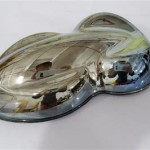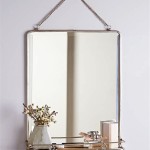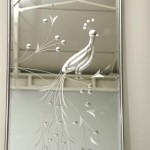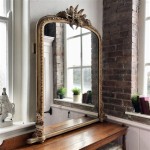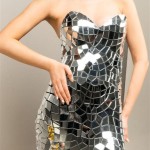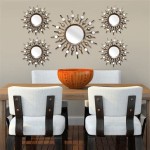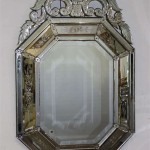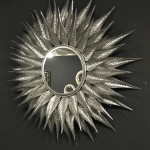Do Mirrors Have Silver in Them?
Mirrors are ubiquitous objects, reflecting our images and surroundings with remarkable fidelity. This reflective property is achieved through a thin layer of reflective material applied to a substrate. While historically silver was the primary material used for this purpose, modern mirror manufacturing often employs alternative materials.
The Historical Significance of Silvered Mirrors
Silver's highly reflective nature and ability to form a smooth, even coating made it an ideal choice for mirror production for centuries. The process, known as silvering, involved applying a thin layer of silver onto glass using a chemical reaction. This traditional method produced mirrors with a warm, slightly yellowish reflection.
The Modern Mirror: Aluminum Takes Center Stage
Despite its effectiveness, silver has certain drawbacks. It is susceptible to tarnishing due to oxidation when exposed to air and sulfur-containing compounds. This necessitates protective coatings which can add complexity to the manufacturing process. Therefore, most mirrors manufactured today utilize aluminum as the reflective coating.
The Aluminum Deposition Process
Aluminum offers several advantages over silver. It is more resistant to corrosion and provides a brighter, more neutral reflection. Furthermore, aluminum is significantly less expensive than silver. The process of applying aluminum involves vacuum deposition, where aluminum is vaporized in a vacuum chamber and allowed to condense onto the glass surface, forming a thin, uniform layer.
Protective Coatings: Enhancing Durability and Longevity
Whether silver or aluminum is used, the reflective coating is delicate and requires protection. Multiple layers of protective coatings are applied over the reflective layer. These coatings typically consist of materials like copper, paint, or other protective polymers, safeguarding the reflective surface from scratches, moisture, and environmental damage, thereby extending the life of the mirror.
Other Reflective Materials: Exploring Alternatives
While aluminum is the dominant material in commercial mirror production, other materials find application in specialized mirrors. For instance, dielectric mirrors use multiple thin layers of transparent dielectric materials. These mirrors are designed to reflect specific wavelengths of light, making them useful in scientific instruments and lasers. Gold is also occasionally used, primarily in decorative applications or infrared reflectors, due to its high reflectivity in the infrared spectrum.
The Role of the Substrate: Beyond Glass
While glass is the most common substrate for mirrors due to its transparency and smooth surface, other materials can also serve this purpose. Polished metal surfaces, like stainless steel, can act as mirrors without the need for a separate reflective coating. Plastics coated with reflective materials are used for applications where weight and shatter resistance are critical factors, such as in automotive rearview mirrors.
Environmental Considerations: Silver Recovery and Recycling
Although silver is less common in modern mirrors, it is still used in some applications. Recognizing the value and potential environmental impact, some manufacturers recover silver from discarded mirrors. This process involves dissolving the silver coating and then extracting the silver through chemical or electrochemical methods. Recycling silver from old mirrors not only conserves resources but also reduces the need for mining new silver.
The Future of Mirrors: Smart Mirrors and Beyond
Mirror technology continues to evolve. Smart mirrors, integrating displays and touchscreens, offer functionalities beyond simple reflection. These mirrors can display information like news updates, weather forecasts, and even allow users to make video calls. As technology progresses, further advancements in reflective materials, coatings, and integrated functionalities can be anticipated, expanding the role mirrors play in our daily lives.

Guide To Silver Coating Mirrors Vs Aluminum

Guide To Silver Coating Mirrors Vs Aluminum

Mercury Mirror

Compound Interest Making Silver Mirrors Using Chemistry

What Color Is A Mirror And How Do Mirrors Reflect

Onax Glass Handmade Luxury Console Mirror Silver

Guide To Silver Coating Mirrors Vs Aluminum

Mercury Mirror

Guide To Silver Coating Mirrors Vs Aluminum

How To Repair Desilvering What Do About Black Edges On Mirrors

